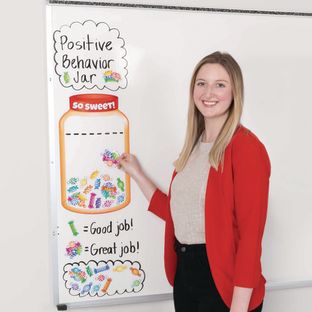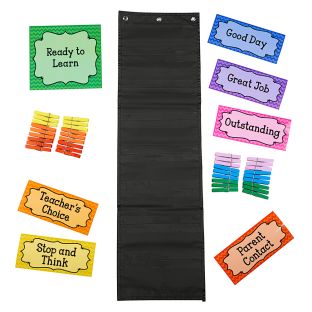SEL Decision Making – Elementary
Popular Elementary SEL Decision Making Materials
Inspire engagement with popular Elementary SEL Decision Making Materials. Our most-purchased Elementary SEL Decision Making Materials are versatile and appropriate in most school environments.
Really Good Stuff’s top Elementary SEL Decision Making Materials enhance experiences for students as well as teachers. Shop our most popular SEL Decision Making Materials for educators.
Elementary SEL Decision Making Products
Top-Rated Elementary SEL Decision Making Materials | 2025 School Year
Get top-rated Elementary SEL Decision Making Materials from Really Good Stuff. Teachers rate these 3 SEL Decision Making Materials with an average of 5 stars, making them the best SEL Decision Making Materials.
Explore these Elementary SEL Decision Making Materials loved by students aged 4 to 6 years-old. Through premium Elementary supplies, SEL Decision Making Materials can help your PreK grade to 6th grade class.
Learn More About Elementary SEL Decision Making Materials
Enhance your Elementary classroom with Really Good Stuff’s SEL Decision Making Materials. Our catalog of 6 high-quality SEL Decision Making Materials start at $9.99 and fit the Elementary classroom. From premium brands like Really Good Stuff®, these SEL Decision Making Materials meet the needs of Elementary teachers.
Really Good Stuff’s SEL Decision Making Materials for Elementary students work for ages 6 to 10 and for grades 1st to 6th. Teachers match Elementary SEL Decision Making Materials with other SEL Decision Making Materials from the Social-Emotional Learning category.
Make Really Good Stuff your top choice when looking for SEL Decision Making Materials for your Elementary classroom.
Integrating Social and Emotional Learning (SEL) Decision Making into the elementary classroom enhances students’ capacity to navigate everyday challenges with confidence and empathy. Teachers often incorporate SEL Decision Making through various engaging activities like role-playing scenarios, group discussions, and interactive games that allow children to practice identifying problems, evaluating choices, and understanding the consequences of their actions. These methods not only help students develop their problem-solving skills but also foster a collaborative classroom environment where empathy and respect are paramount.
When choosing SEL Decision Making products for your elementary classroom, consider the following three tips to ensure the best fit for your needs. First, select products that are developmentally appropriate, aligning with the cognitive and emotional abilities of your students. For example, younger students in grades K-2 may benefit from simple, visual aids and storytelling techniques, while older students in grades 3-5 might engage more with complex scenarios and group projects. Second, look for resources that offer practical, real-life applications, enabling students to connect their learning to everyday situations both in and out of the classroom. Lastly, prioritize products that include comprehensive guides or lesson plans, providing structured yet flexible ways for teachers to integrate SEL Decision Making seamlessly into their existing curriculum.
In elementary classrooms, SEL Decision Making products are designed to suit a wide age range, typically from Kindergarten through 5th grade, roughly ages 5 to 11. When selecting these products, it’s crucial to consider the unique developmental stages of elementary-aged children. Unlike middle or high school students, younger children require more guided instruction and age-appropriate language to grasp complex concepts such as decision-making and empathy. Products should be visually engaging and activity-based, facilitating hands-on interaction and immediate feedback. Additionally, it’s important for educators and administrators to choose resources that promote inclusivity and adaptability, ensuring that all students, regardless of their individual needs, can benefit from SEL Decision Making lessons.
In summary, incorporating SEL Decision Making into elementary education requires thoughtful selection of age-appropriate, engaging, and practical products that cater to the diverse developmental stages of young learners. By doing so, we not only equip students with the essential skills to make thoughtful decisions but also create a nurturing environment that values emotional intelligence and collaborative problem-solving.
FAQs for Elementary SEL Decision Making Materials
What are the highest rated Elementary SEL Decision Making Materials?
- Really Good Stuff® Positive Affirmation Chips – Set of 100 in 50 Unique Designs and Sayings (5 stars) – $9.99
- Mini Behavior Trackers – 12 trackers (5 stars) – $26.99
- So Sweet! Positive Behavior Jar – 44 magnets (4.9 stars) – $26.99
What Elementary SEL Decision Making Materials do teachers use most?
- Really Good Stuff® Positive Affirmation Chips – Set of 100 in 50 Unique Designs and Sayings (5 stars) – $9.99
- So Sweet! Positive Behavior Jar – 44 magnets (4.9 stars) – $26.99
- Really Good Stuff® Classroom Behavior EZ-Tuck Clip ‘N’ Track Pocket Chart® – 1 pocket chart kit (3.7 stars) – $54.99
Can you recommend some budget-friendly Elementary SEL Decision Making Materials?
- Mini Behavior Trackers – 12 trackers (5 stars) – $26.99
- So Sweet! Positive Behavior Jar – 44 magnets (4.9 stars) – $26.99





